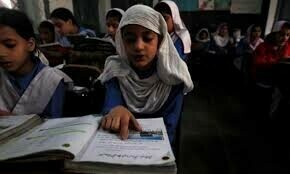Model Town probe report says police acted on govt orders

LAHORE: The judicial commission investigating the June 17 Model Town incident has held the government responsible for it and said police acted on government orders which led to the bloodshed.
The report has said the affidavits of Chief Minister Shahbaz Sharif and former law minister Rana Sanaullah contained contradictions regarding the orders they reportedly issued to police to disengage, and declared that what happened on the ground did not match such claims.
Contents of the report, which the government says is secret, were first revealed by anchor of a private television channel on Tuesday and were confirmed to Dawn by independent sources.
Quoting the report, the sources said decisions taken at a meeting presided over by Mr Sanaullah before the incident led to the worst kind of bloodshed.
Punjab govt insists the judicial commission’s report is inconclusive
According to the report, Mr Sharif claimed in his affidavit that he had ordered police to disengage in Model Town. However, the chief minister did not mention this in the press conference he addressed after the fiasco.
“It seems the word ‘disengagement’ was an afterthought to save the chief minister,” the sources quoted the report as saying.
The report said the action in Model Town was taken under the orders of the government, said the sources. It also said the police were totally responsible for it.
A Punjab government spokesman said the report of the judicial tribunal was received and examined. It was observed that it required further analysis, as it was inconclusive.
He said that because the report was based on some documents, statements and affidavits which were not provided with it a request was immediately made to the high court for the provision of the documents so that the report might be reviewed and necessary action taken.
“Meanwhile, the government has constituted a committee to carry out a detailed analysis of the report and make recommendations and a way forward accordingly. The moment the subject missing documents are received, the report shall be referred to the committee and further necessary action would be taken in the light of its recommendations,” the spokesman added.
Sources in the Punjab government did not contradict the claims made by the television anchor or by those who talked to Dawn. But they insisted that the report was inconclusive.
The commission did not have the mandate to give findings or fix responsibility and its presiding officer, Justice Ali Baqar Najfi, mentioned this to media while handing over the report to the provincial home department.
They said that during the proceedings the commission did not object to the affidavit of the chief minister in which he had said that he had asked police to disengage.
His was the only affidavit which was not read out before the commission. Also, the chief minister was not cross-examined by the commission.
“Under the law, the objections are highlighted during cross-examination of the provider of an affidavit. And changes are shown to the supplier and his or her signatures are sought on it.
“If this is not done, the affidavit is considered to be accepted. And this is what happened with the chief minister’s affidavit,” a source said.
The sources said the Punjab government had sought affidavits and other documents from the commission exactly for this purpose. They said Mr Sanaullah ordered removal of the encroachments in front of Dr Tahirul Qadri’s residence after receiving reports that they were illegal. “He did not order action against anything legal.”
Official sources said the findings of any judicial commission were not binding on the government. And in this case there were no findings.
Giving findings and fixing responsibility were the job of the government. The government would fix the responsibility only after examining the supporting affidavits and other documents being sought from the commission, they added.
Published in Dawn, August 27th, 2014













































